Italian farmers storm Rome's Circus Maximus in latest protest
More than a thousand farmers have stormed into Rome's historic chariot-racing stadium along with driving tractors in their prolonged campaigns that have resonated throughout various European capitals.
The agitated farmers invaded the iconic Circus Maximus on Thursday to voice their complaints over falling incomes and rising costs.
A fraction out of the demonstrating population also assembled near prime minister Giorgia Meloni's Palazzo Chigi offices.
Their complaints vary from the price of fuel to environmental regulations imposed by the European Union in an effort to combat climate change, which they argue are negatively impacting their means of living.
Different farmer groups have been staging small protests since early January from Sicily to Turin, complaining of falling incomes and rising costs.
Meloni convened a round-table discussion on Friday with Italian farmers' associations, during which she pledged to restore a restricted tax exemption that had been temporarily halted by her conservative administration.
In light of the widespread protests throughout the European Union leading up to the European Parliament elections this summer, the European Commission has made several concessions in recent weeks.
These concessions encompass an extension of the exemption on regulations regarding leaving a portion of agricultural lands fallow, which was a specific request from Italy's farmers.
Additionally, the commission has decided to abandon its intentions to reduce pesticide usage in agriculture.
Last week on Thursday, Italian farmers staged a similar protest against the European Union and national agricultural policies, along with storming the capital with tractors.
Widespread demonstrations have taken place across various EU nations as part of Europe-wide rallies against stringent regulations and escalating inflation.
Farmers throughout Europe, particularly in France and Spain, are voicing their dissatisfaction through these protests.
EU farmers have identified a range of significant concerns, including skyrocketing inflation, exorbitant fuel costs, burdensome bureaucracy, and the environmental responsibilities linked to the EU's Common Agricultural Policy (CAP) and its forthcoming Green Deal.

Two Israeli soldiers flee Amsterdam over arrest warrant fears
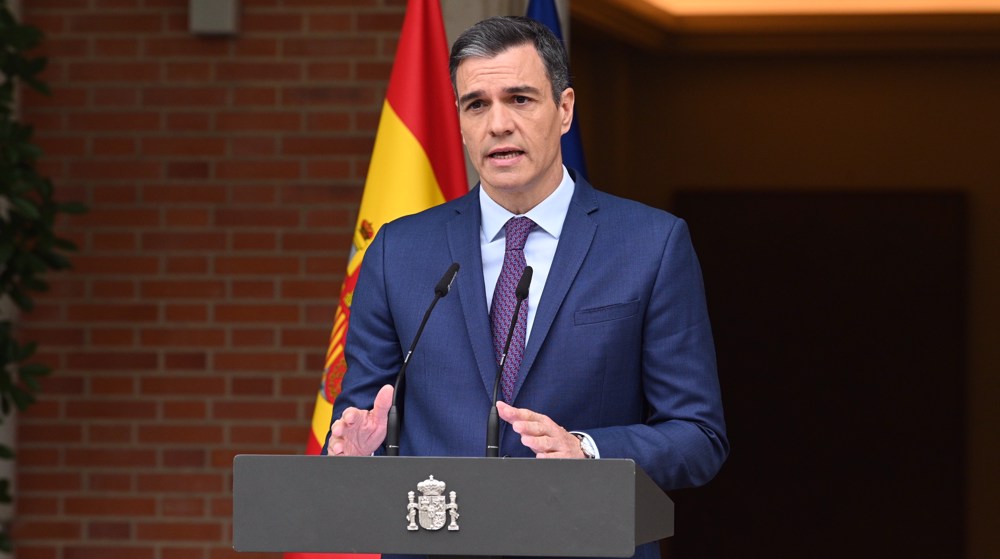
Spanish PM decries Trump’s plan to displace Palestinians from Gaza

US, Russian officials to meet in Saudi Arabia to discuss Ukraine war: Report
Two Israeli soldiers flee Amsterdam over arrest warrant fears
Iran rebukes US 'colonial' plan for forced relocation of Gazans
'Existential threat': Israel to seize Armenian properties in al-Quds
Pezeshkian: Iran-Russia deal manifestation of mutual cooperation
Far-right Israeli minister calls for 'forced' relocation of Gazans
BBC pro-Israel bias in reporting Gaza genocide
VIDEO | Legalities of Trump’s deportation of immigrants
Israel must be held accountable for genocide in Gaza: Iran envoy


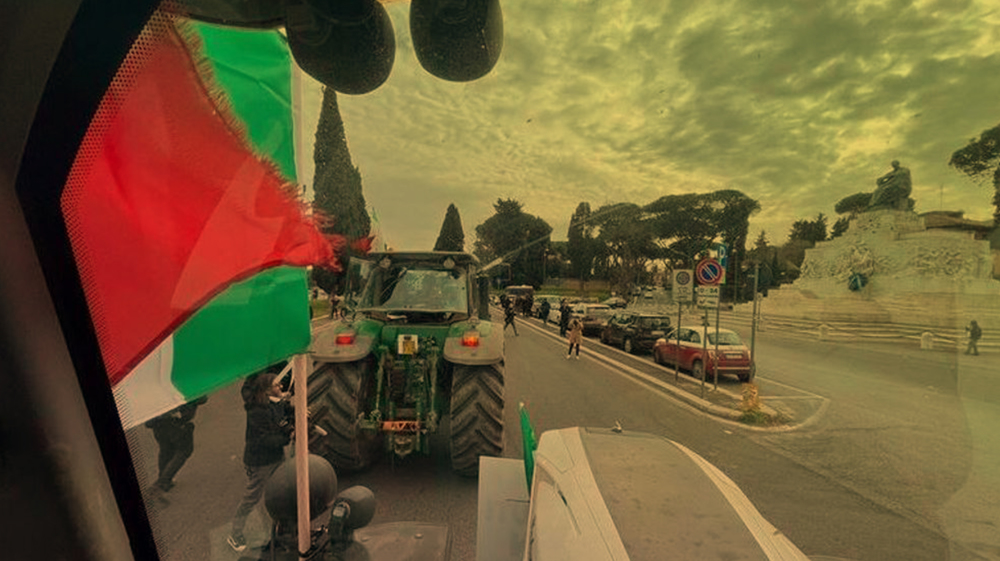



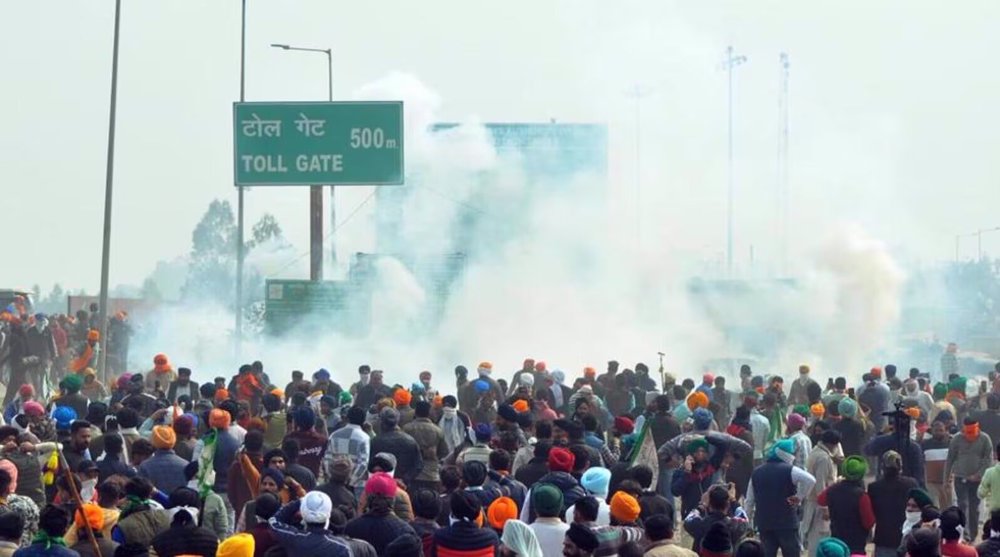
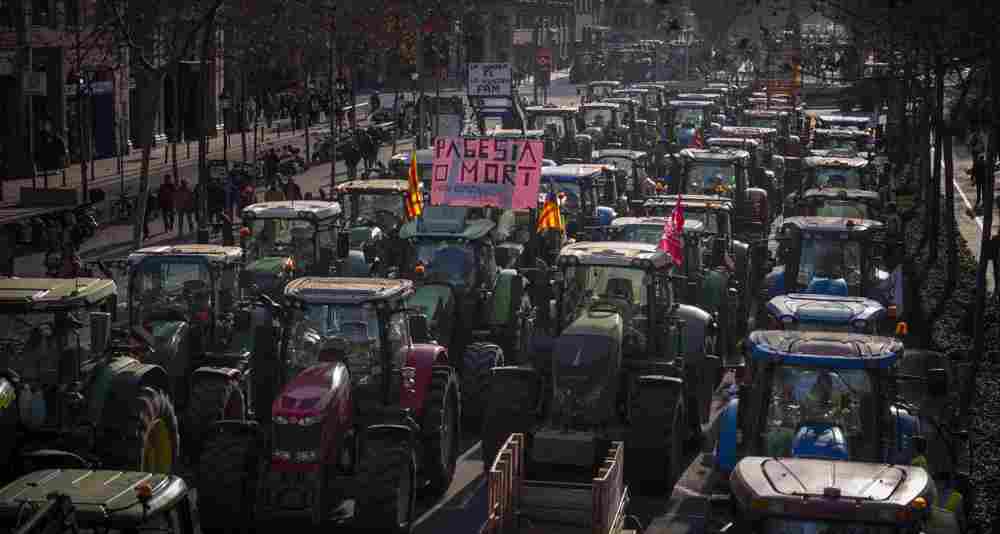
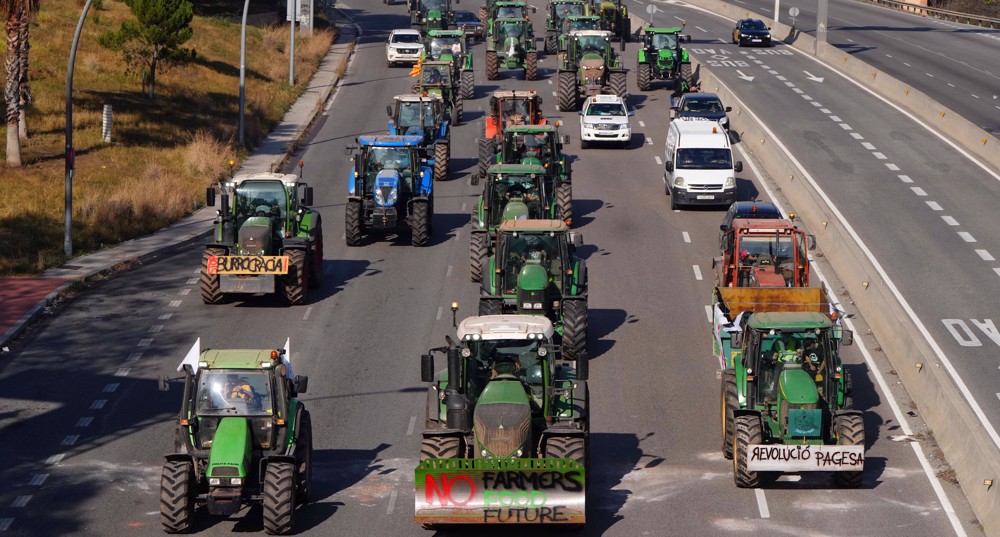
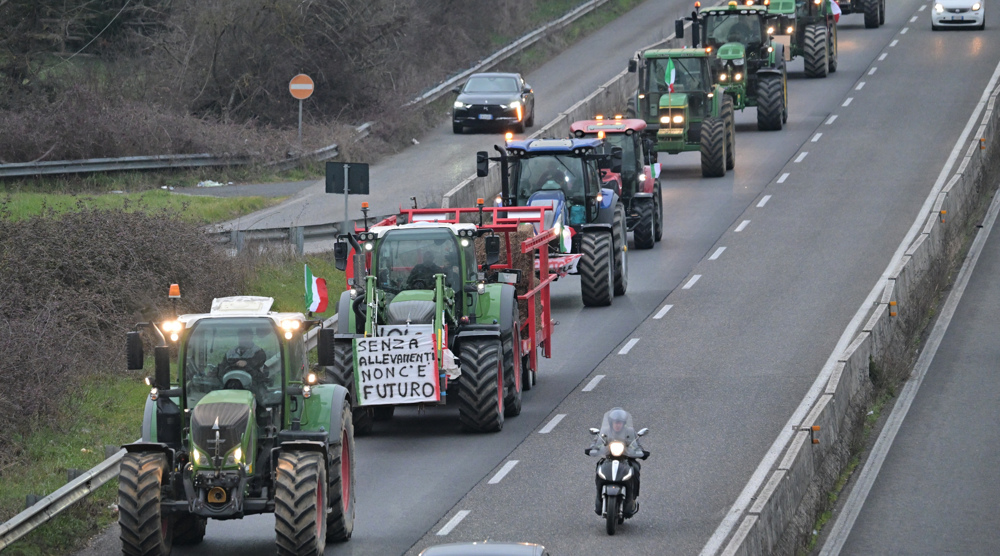
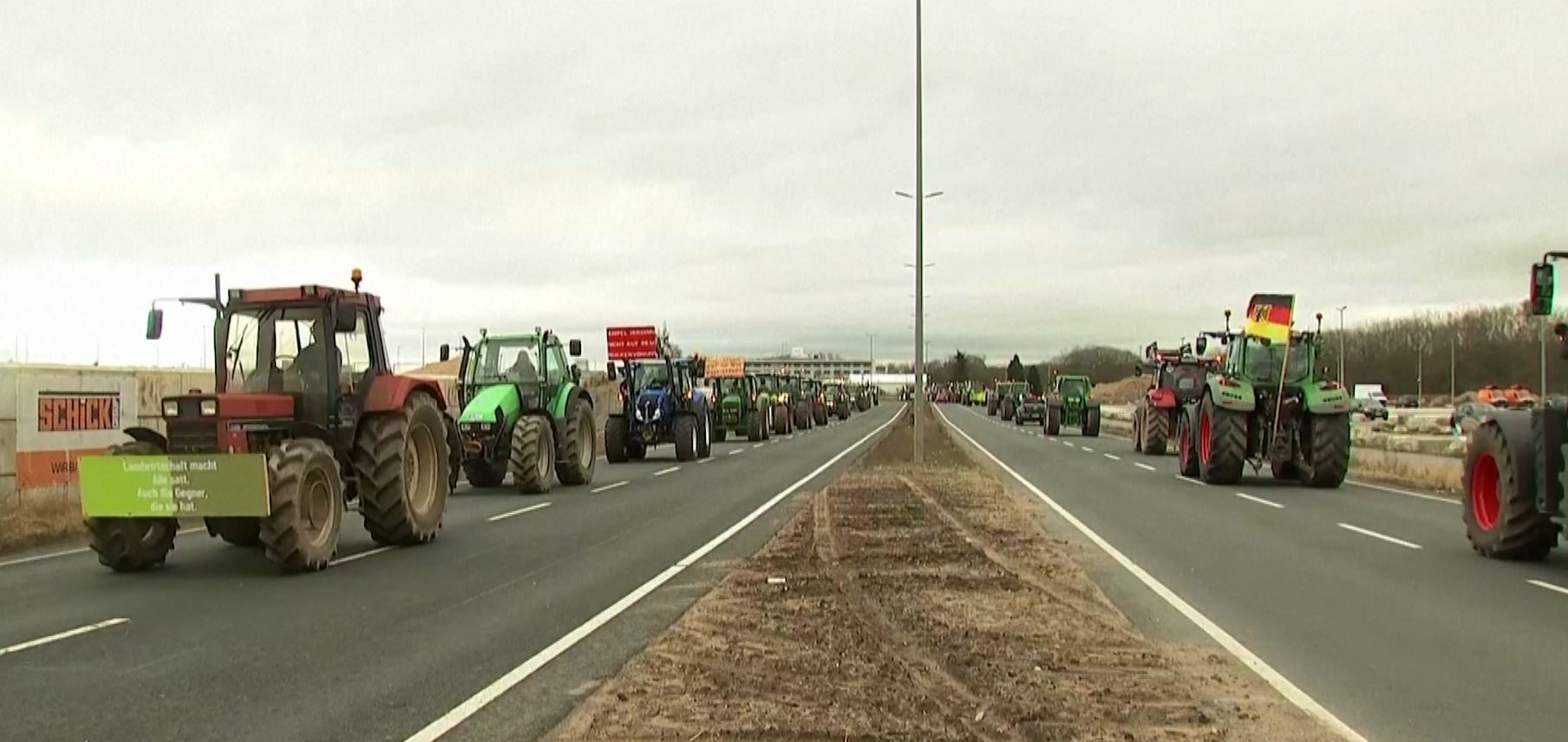
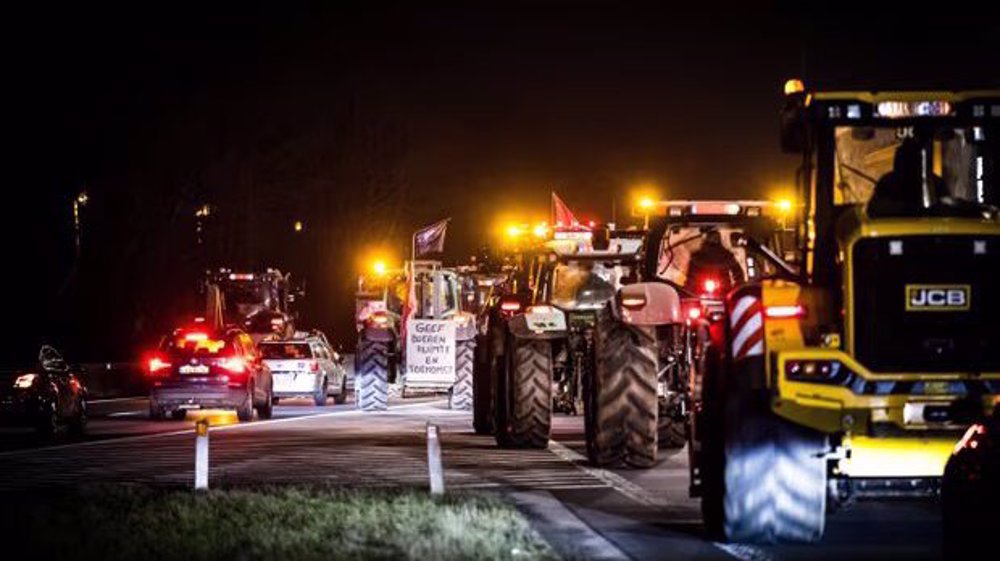
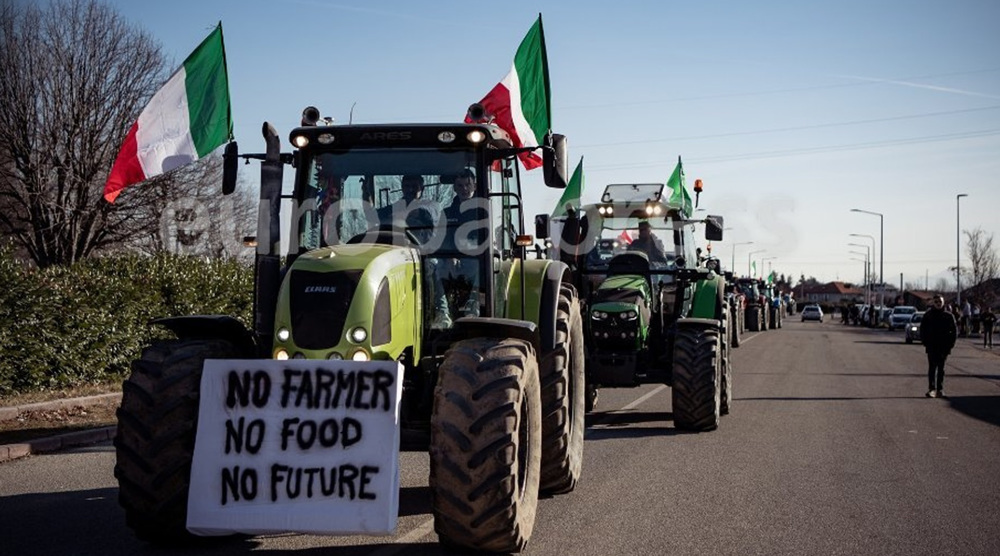
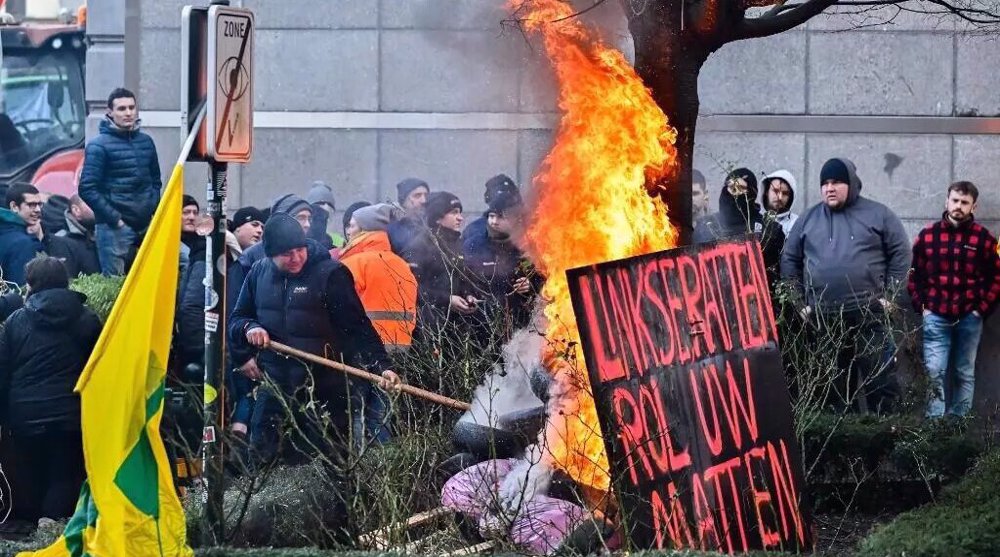

 This makes it easy to access the Press TV website
This makes it easy to access the Press TV website